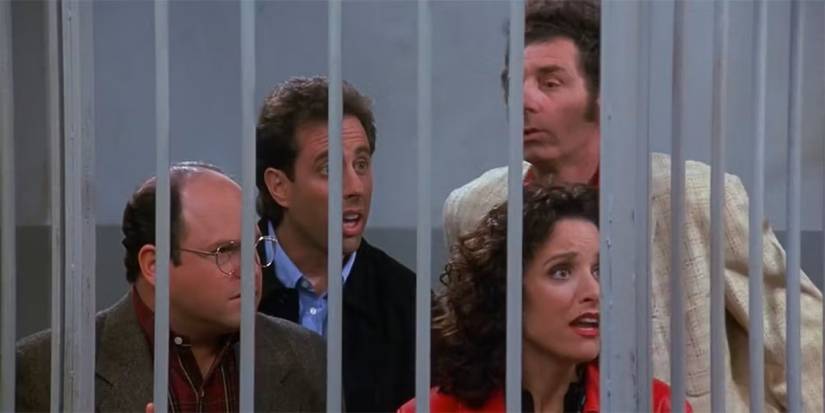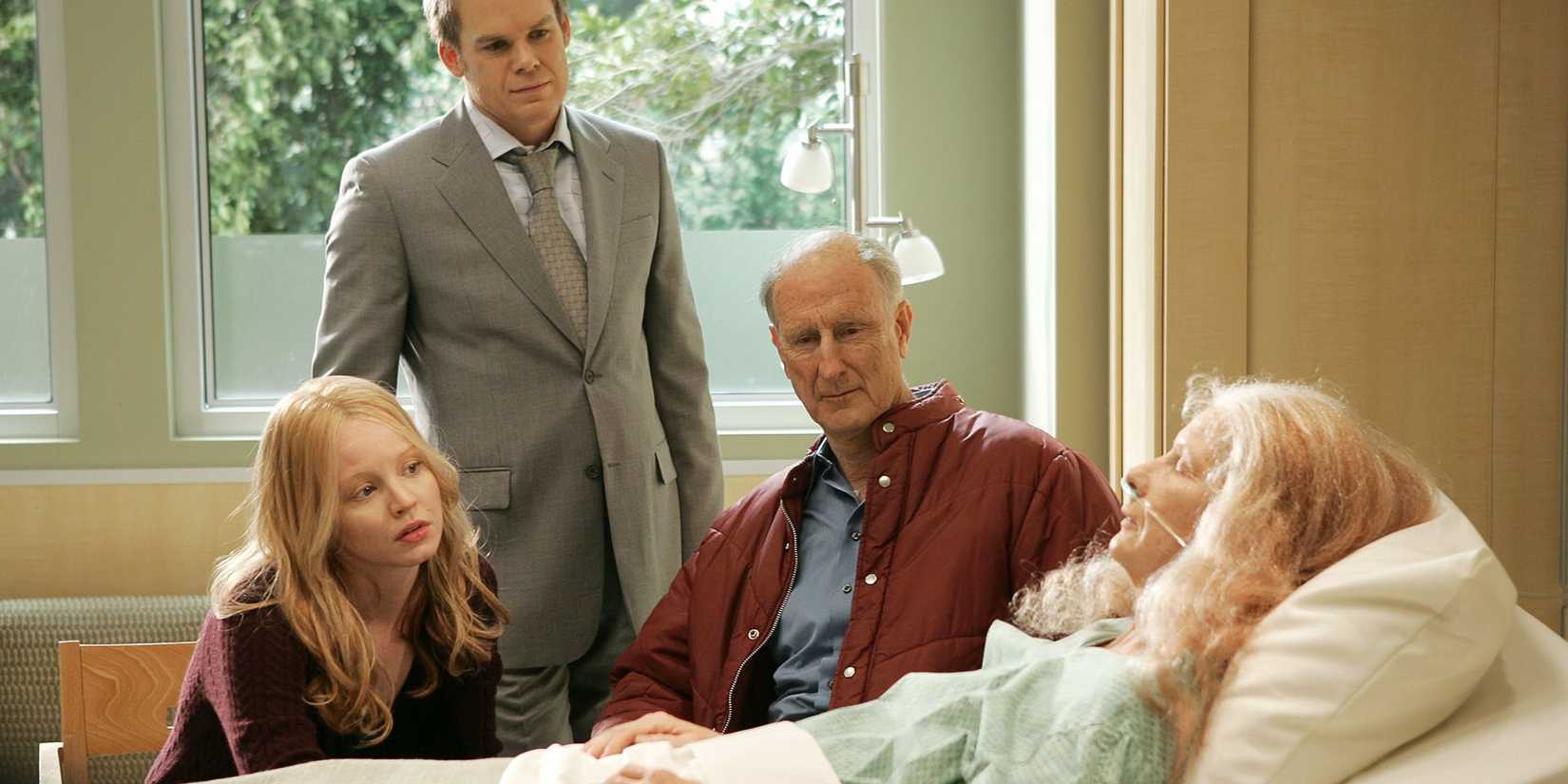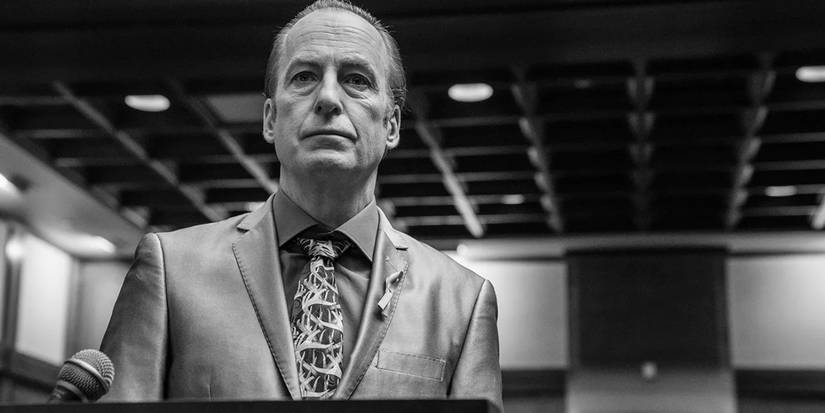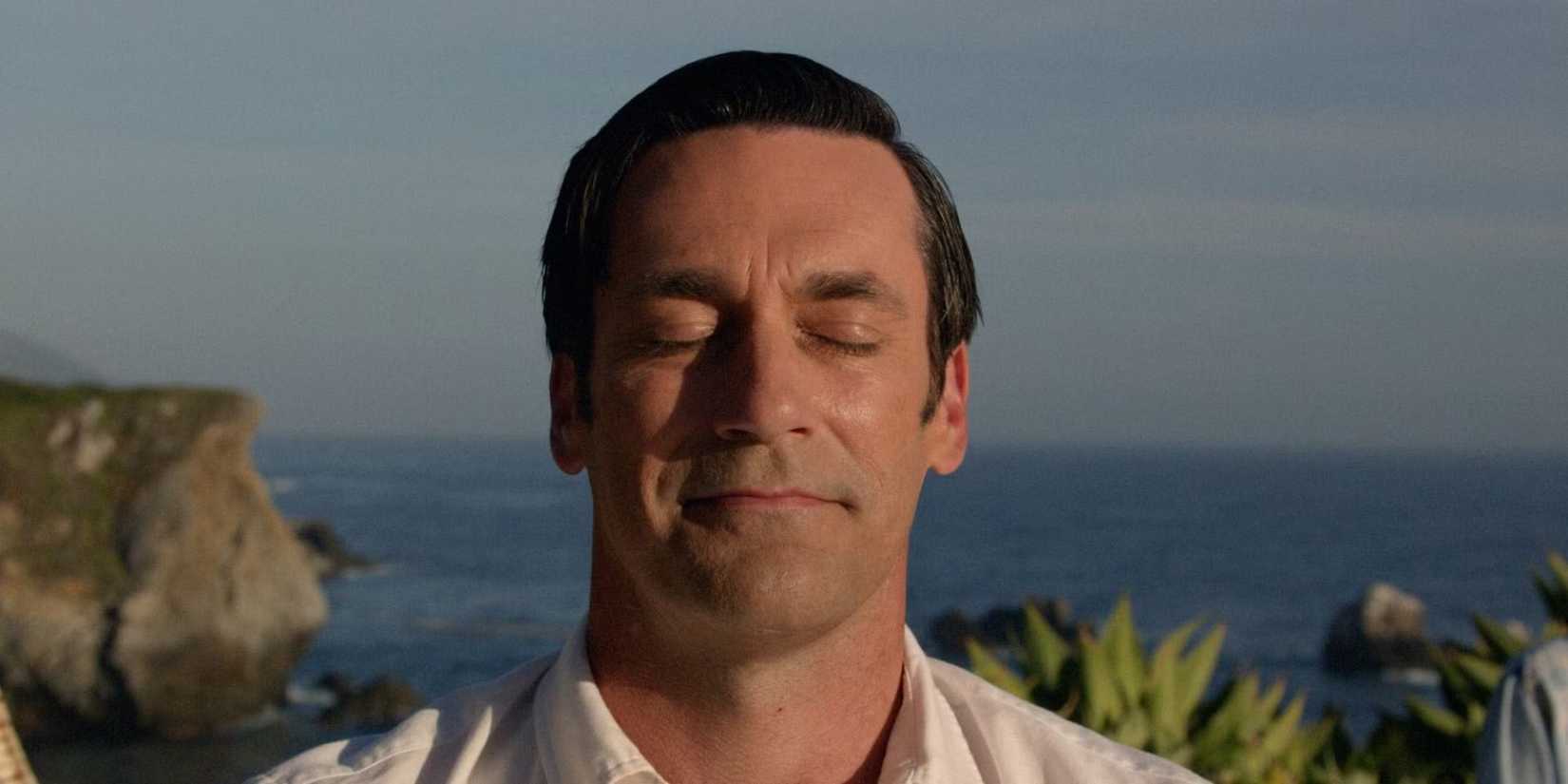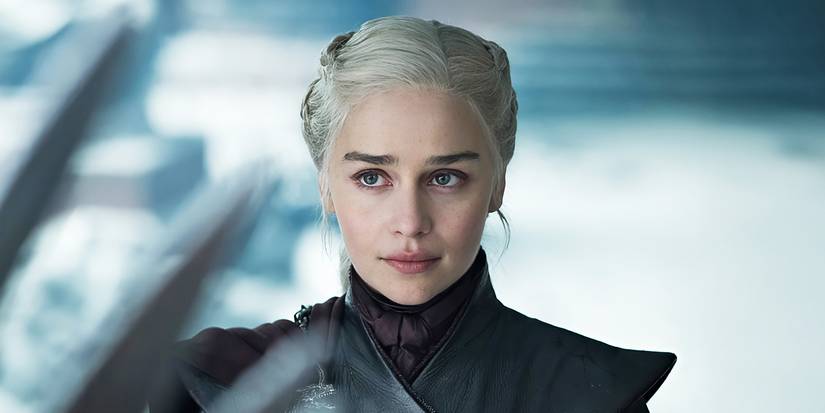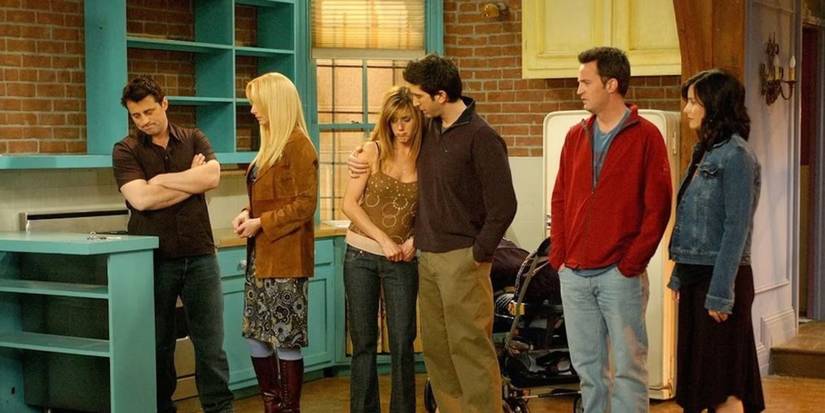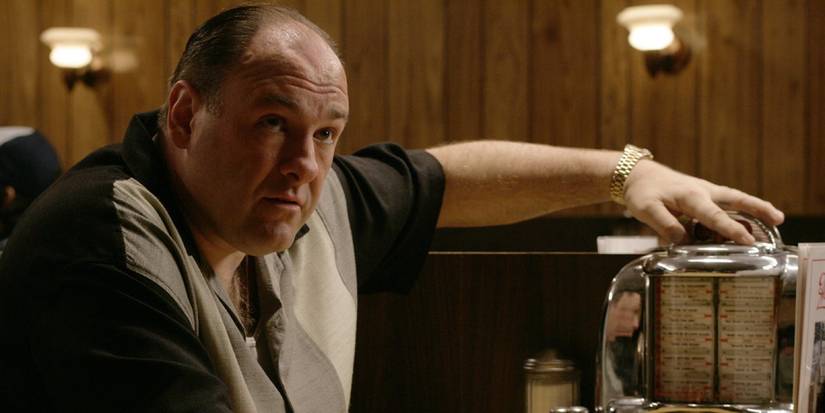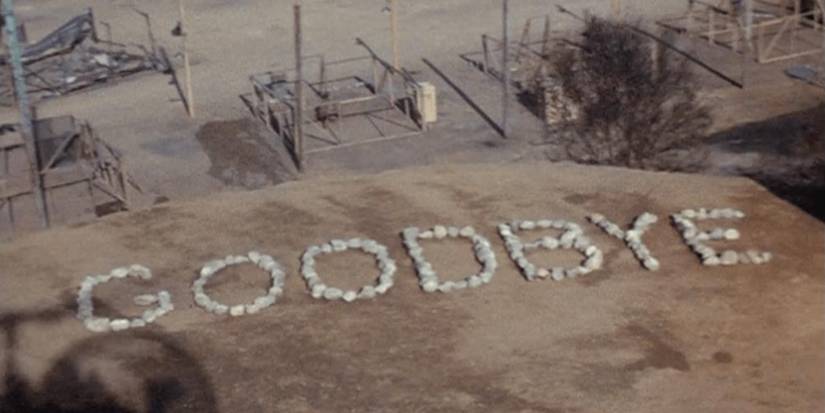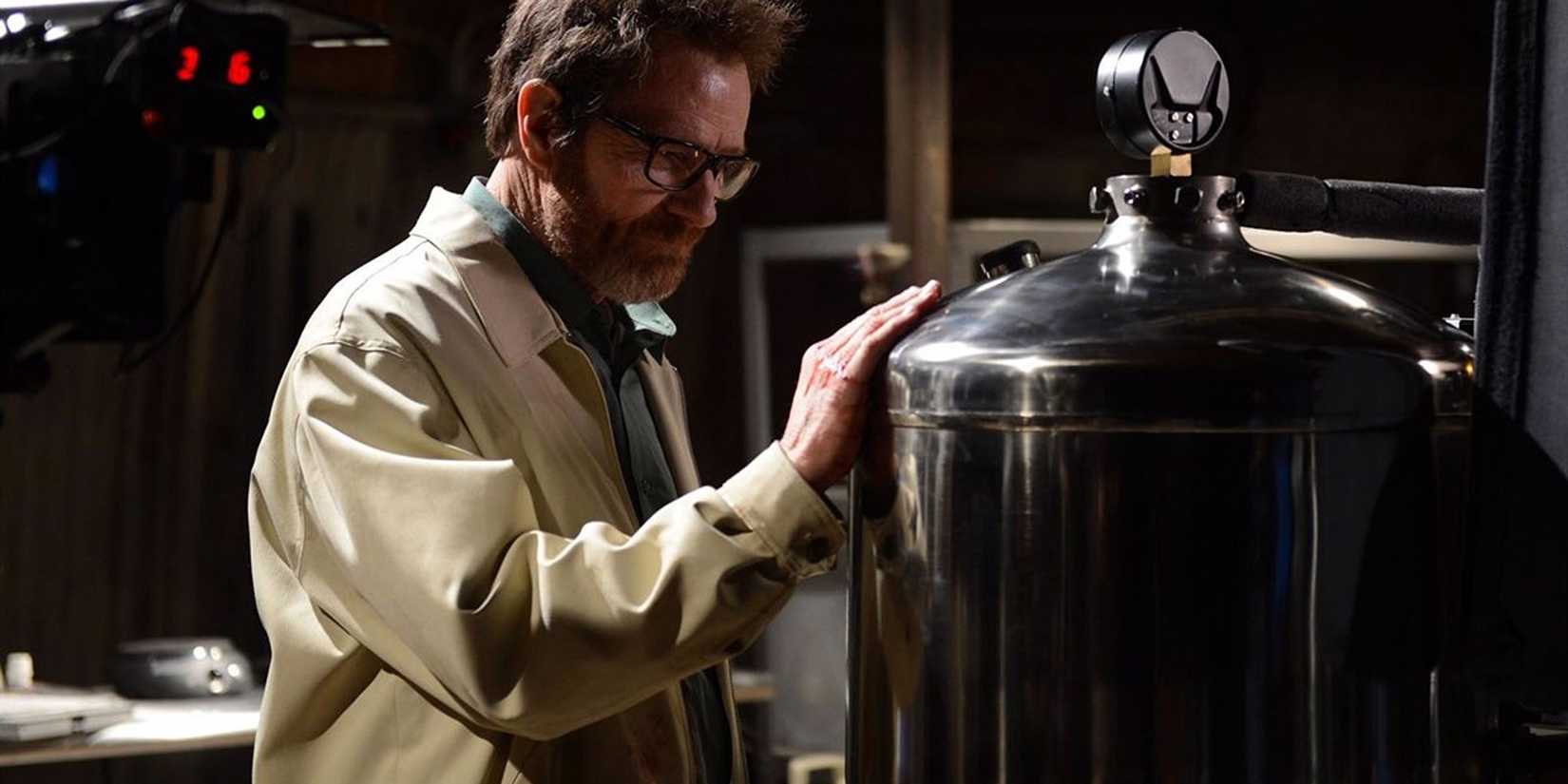10 Most Legendary Series Finales in TV History, Ranked

Throughout the long history of television entertainment, dating as far back as the late 1920s, many episodes from a vast array of series have achieved a certain iconic standing. It is no surprise that many of these episodes come in the form of series finales, closing chapters that bid one final farewell to viewers after years and years of storytelling.
Naturally, the majority of TV’s most legendary series finales occupy an air of brilliance, standing as note-perfect conclusions to complicated stories that give fans both closure and comfort. However, some swan songs have also garnered a certain notoriety, an infamy for their calamitous or, at the very least, polarizing resolutions. Covering the good, the bad, and the ugly, these series send-offs are enshrined in the annals of television history as being truly legendary.
10
“-30-”
‘The Wire’ (2002-2008)
An enthralling, all-encompassing deep dive into Baltimore’s drug trade, how the police try to combat it, and the political ramifications of the city’s rampant crime, The Wire is itself a legendary title of television. As a series finale, Season 5’s “-30-” doesn’t necessarily offer much in the way of shocking revelations or eye-popping climaxes, but it does reinforce the series’ brutally realistic tone while offering a sense of finality to many of the main characters’ journeys.
From the roguish cop Jimmy McNulty (Dominic West) to the redemption of Bubbles (Andre Royo), and especially to the tragic paths several of the series’ child characters elect to go down, The Wire strikes a perfect balance between offering closure while signaling how each character will progress. It’s damning and devastating, though unforgettably divine, a true masterpiece of climactic writing delivering a resounding finale that plays a significant role in The Wire’s enduring legacy as one of television’s greatest ever triumphs.
9
“The Finale”
‘Seinfeld’ (1989-1998)
A finale that remains polarizing and divisive almost 30 years on from when it first aired, Seinfeld’s conclusion is among television’s more controversial chapters. Famously a series about “nothing,” Seinfeld follows four self-interested friends in New York City, examining the dramas and oddities that feature in everyday life. Naturally, the quartet’s misadventures lead to them insulting and belittling many people they encounter. Aptly named “The Finale,” Seinfeld’s final episode sees many of these vexed characters come back as Jerry (Jerry Seinfeld) and his friends stand trial for violating the Good Samaritan law.
Many fans felt the episode was a departure from the comedy of the series that unnecessarily saw the main characters go from being selfish individuals to genuinely unfeeling and inhuman figures. However, some fans view the trial and the gang’s sentencing to one year in jail as a rewarding dose of comeuppance given their unfriendly nature over the series’ nine seasons. All that is certain is that Seinfeld’s finale stands among television’s most iconic and intrinsically debated, and is sure to endure as a topic of argument for many years to come.
8
“Everyone’s Waiting”
‘Six Feet Under’ (2001-2005)
While it never quite raised eyebrows or dominated the ratings like some other series on this list, Six Feet Under strikes gold with its emotional yet deftly-balanced finale that plays on the series’ formula to offer rewarding resolutions to all the main characters. Following the Fisher family as they own and manage their late father’s funeral home business, the series juggles black comedy, macabre fantasy, and rich drama. Each episode sees the Fishers tend to a different funeral, all while battling each other as they are divided on what they think is best for the family.
While each episode starts with someone’s death, “Everyone’s Waiting” opens with a baby being born before using flash-forwards to illustrate how and when each of the main characters will die. It is perfectly executed, using the show’s integral themes of mortality and humanity to present a textured, rewarding, and cohesive conclusion that is emotionally stirring while maintaining Six Feet Under‘s knack for dark comedy. It sits comfortably among the greatest series finales of all time, and it is a small tragedy that more television fans haven’t been exposed to the series.
7
“Saul Gone”
‘Better Call Saul’ (2014-2020)
Serving as both an expansion of and prequel to AMC’s hit crime series Breaking Bad, Better Call Saul re-immerses viewers in the stylized suspense and panicked pacing of the universe as it follows the career of Jimmy McGill (Bob Odenkirk), AKA Saul Goodman. A street-savvy con man who uses his underhand techniques to benefit people as a public defense attorney, the series documents Saul’s fall from being a good-meaning albeit morally skewed public servant to being a key figure in one of the largest and most devastating drug operations in North America.
Taking place after the events of Breaking Bad, “Saul Gone” delivers an emotionally jarring yet rewarding viewing experience that sends off one of television’s most complex yet beloved characters with an intelligent sense of redemption and plenty of bittersweet brilliance. Also functioning as a de facto farewell to the Breaking Bad universe at large, Better Call Saul’s conclusion presents a certain compromised optimism that the story world seldom indulges in, delivering a profound message of morality and accountability that solidifies McGill as one of the medium’s greatest ever characters.
6
“Person to Person”
‘Mad Men’ (2007-2015)
The image of Don Draper (Jon Hamm) sitting eyes-closed in the sun in a white shirt will likely be etched into the annals of television history. Many still ponder whether the advertising genius finally found the peace that had long eluded him, or if the solace he experienced was merely another momentary happiness that he couldn’t help but sell. Closing with the implication that his time in the retreat inspires him to create the famous “I’d Like to Buy the World a Coke” commercial, Mad Men ends with a poignant message of social change and corporate exploitation.
Given the series excels as a character-driven drama doubling as an observation of the evolution of American culture throughout the 1960s, “Person to Person” is an outstanding finale that offers closure regarding all the show’s major characters while exemplifying the new age the nation was entering heading into the ’70s. Also featuring typically brilliant exchanges between multiple characters—particularly Don’s final phone call with Betty (January Jones)—“Person to Person” brings Mad Men to a close while flaunting all its stylish and sophisticated glory.
5
“The Iron Throne”
‘Game of Thrones’ (2011-2019)
Many memorable finales excel at delivering rewarding conclusions that complement the strong storytelling of the season that precedes it. Sadly, the opposite is true of Game of Thrones. Following a tumultuous and sporadic final season, “The Iron Throne” caps off the series with a litany of unanswered questions and a noticeable lack of closure or catharsis as it examines the new political landscape of Westeros following Daenerys Targaryen’s (Emilia Clarke) decimation of King’s Landing.
Not only does the finale fail to bring any depth, nuance, or newfound understanding to Daenerys’ vengeful villainous turn, but it also makes some drastic decisions without any semblance of foreshadowing. These include Westeros adopting a democratic system, Bran Stark’s (Isaac Hempstead Wright) ascent to the throne, and even Bronn’s (Jerome Flynn) position on the small council. Game of Thrones always had a penchant for shocking and subversive storytelling, but that once great strength became a treacherous weakness in its final season, culminating in one of the most derided series finales of all time, one that still inspires vitriol and repugnance from viewers today.
4
“The Last One”
‘Friends’ (1994-2004)
From decades-old hits like I Love Lucy to new-age gems like Brooklyn Nine-Nine, the annals of sitcom television history are loaded with iconic and beloved titles that delivered laughter and heart from start to finish. However, no series in the genre has had the impact and influence of Friends, with millions of viewers the world over drawn to its tale of friendship, romance, and life’s many misadventures as it follows six friends navigating life in New York City.
Over its 10-season run, the series became a true cultural phenomenon, and its 236th and final episode wasn’t just an anticipated finale but a must-see event that was immediately made legendary by its social gravitas and its strong narrative sense. A touching ode to the closing of a chapter leading to new beginnings, the series’ final shot—the empty apartment as each of the six friends moves on with their lives in different ways—is both a brilliant celebration of life’s progression and an unforgettable farewell to what is still one of the most popular and significant sitcoms of all time.
3
“Made in America”
‘The Sopranos’ (1999-2007)
Marking one of the most unforgettable series conclusions of all time, The Sopranos ends in a truly stupefying fashion with Tony Soprano (James Gandolfini) meeting his family in a diner for dinner. The tension builds with every person who walks by, and then an abrupt cut to black closes what is arguably the greatest series of all time. While polarizing upon release, “Made in America” has come to be celebrated as one of the finest chapters of American television this century.
The ambiguity surrounding Tony’s fate has kept fans entrenched in speculation and discussion ever since the episode aired in 2007, but The Sopranos also uses its finale to bring about resolutions to other ongoing arcs. It is rewarding and precise where it needs to be, but it is bold and subversive in other regards, conjuring a daring series finale that has become truly timeless and iconic.
2
“Goodbye, Farewell and Amen”
‘M*A*S*H’ (1972-1983)
One of the best-known and most enduring television titles of all time, M*A*S*H famously follows an encampment of army medics during the Korean War, exploring their daily lives as friendships develop and humor is used to offset the brutality of what they face. The series ended after 256 episodes with “Goodbye, Farewell and Amen,” which depicts the final days of the conflict, the celebrations and pack-down after the ceasefire, the many tearful farewells between characters, and, most memorably, Hawkeye’s (Alan Alda) climactic helicopter “GOODBYE”.
Its impact as a social phenomenon can’t be overstated, with advertising slots being costlier than those of the Super Bowl that same year and its staggering total of 105.97 million viewers remaining an unbroken record as the most-watched episode in U.S. television history. Even more than 40 years on from its premiere, “Goodbye, Farewell and Amen” stands as one of the most well-known and iconic episodes the medium has ever seen, enshrining it as one of the most legendary feats in the history of small-screen entertainment.
1
“Felina”
‘Breaking Bad’ (2008-2013)
A masterpiece of crime television, Breaking Bad follows Walter White’s (Bryan Cranston) evolution from being a meek high school science teacher to becoming one of the most powerful drug lords after he decides to cook crystal meth as a means to provide for his family after being diagnosed with inoperable lung cancer. Come the final stretch of Season 5, White is a notorious outlaw on the run, with the series finale, “Felina,” seeing him strive to right his wrongs where he can.
It is a finale that delivers closure masterfully, capping off essential relationships with elegance and impact while landing a hammer blow of a final sequence that, complemented by Badfinger’s “Baby Blue,” stands as the best and most legendary end to a series in television history. Maintaining Breaking Bad’s unique stylistic inflections while still offering powerful and poignant drama, “Felina” is as divine a series finale that television lovers are ever likely to see.
